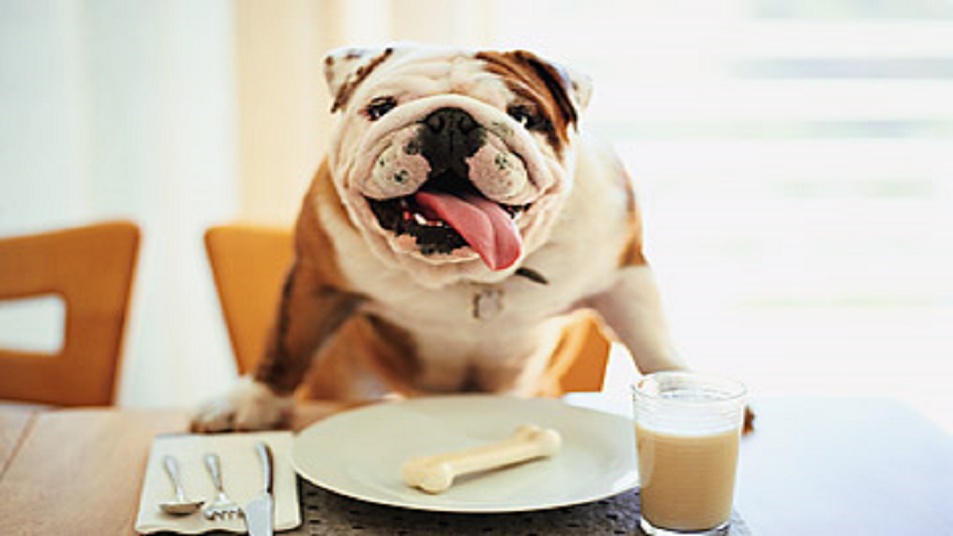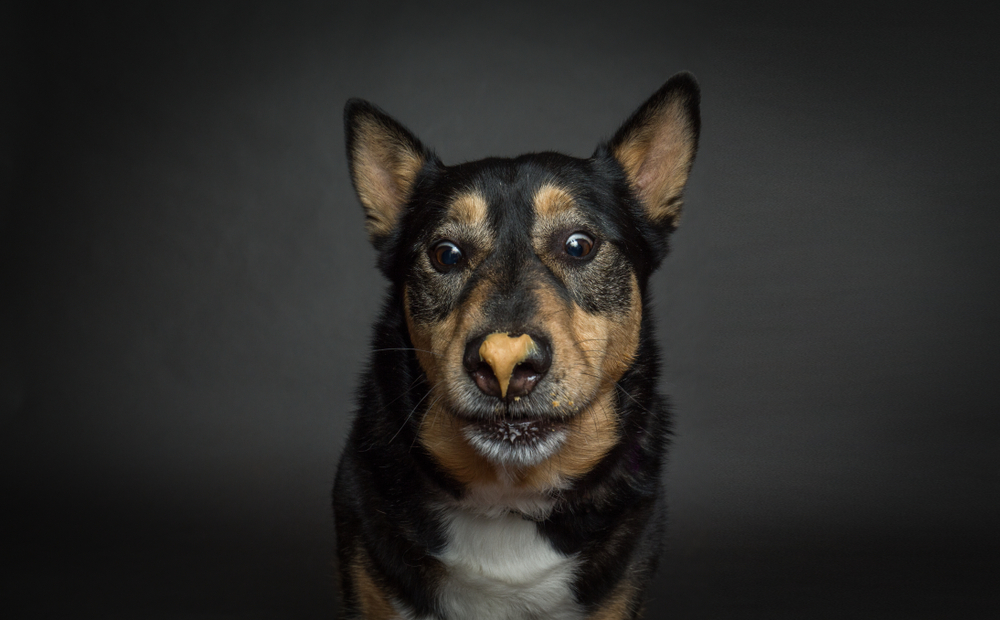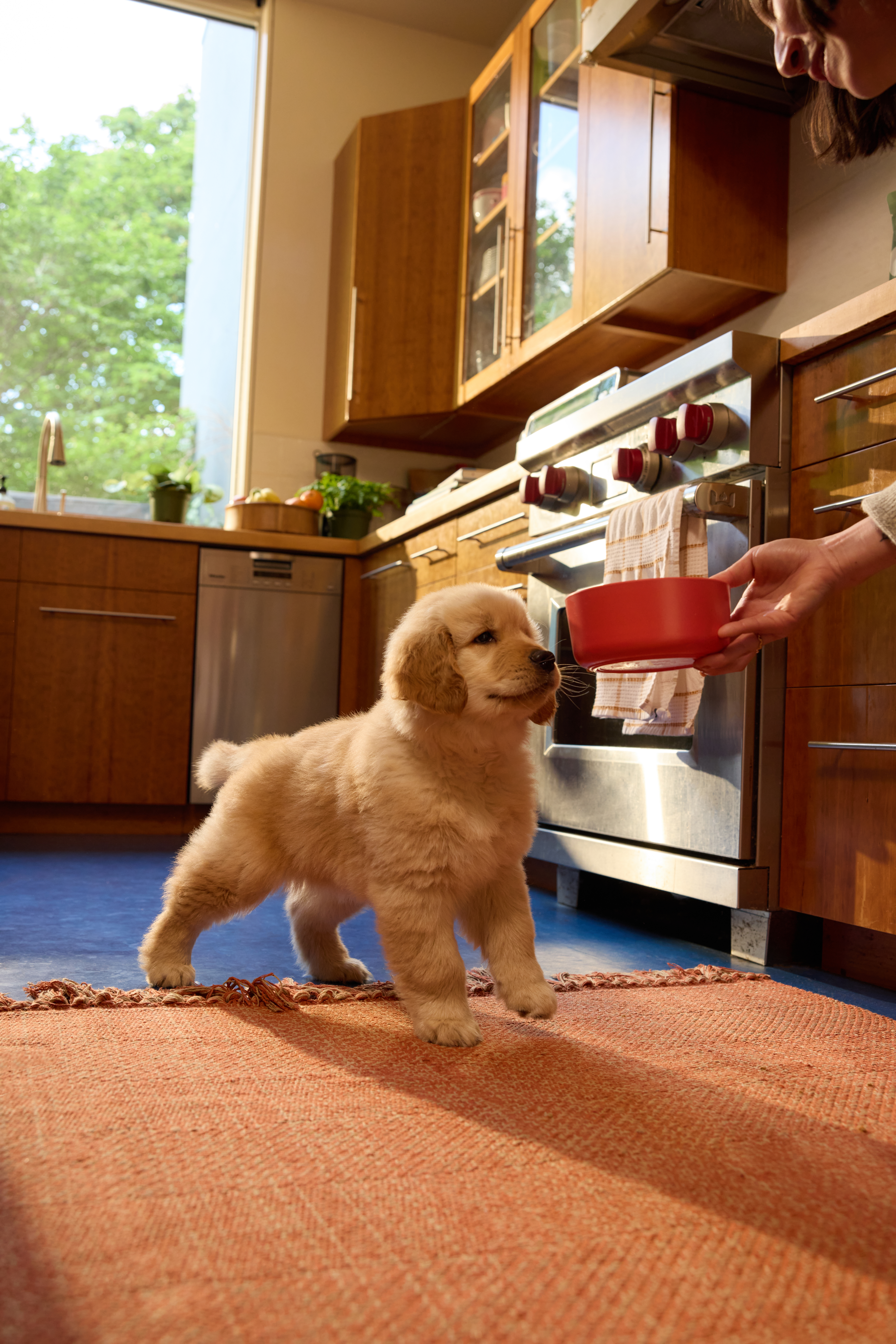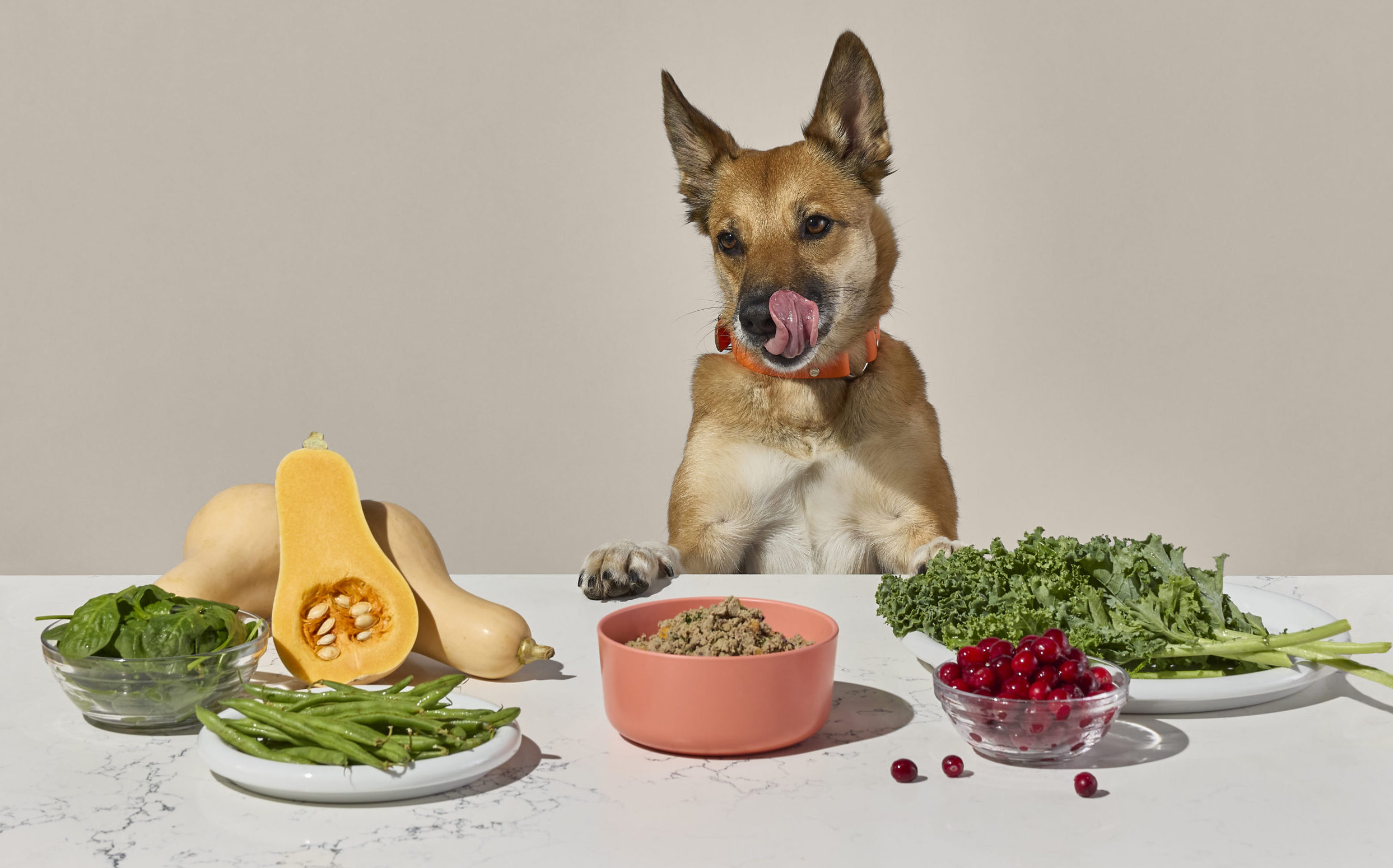Hey Ollie blog readers! We’re offering you an exclusive 60% OFF your starter box! Try now!
Adapted and reposted from Cesar’s Way
Can something as simple as carefully reading a dog-food label add three to five years to your pet’s life? Can the wrong bite of an ostensibly healthy fruit have nasty and lasting consequences? Does your dog need a diet—and would you know if he did? For pups as for people, scientists are constantly re-examining and revising the official live-longer-and-better guidelines.
Apples
All the stuff in apples that makes them nutritional powerhouses for humans (fiber, vitamins A and C, omega-3 and -6, antioxidants, flavonoids, polyphenols) works wonders for your dog, too—with a few exceptions. The seeds contain a form of cyanide, which human systems can filter out but our four-legged friends can’t, and too many apples can lead to diarrhea or, because of their high sugar content, weight gain.
Bones
Despite popular images, not every bone is good for your dog. Almost everyone knows that easily-splintered poultry bones are particularly dangerous for dogs. But improperly prepared beef and pork bones can be just as harmful.
Carbohydrates
Smart carbs are a fantastic source of energy for dogs and helpful in maintaining healthy digestion. Not only do they pair up with fatty acids and proteins to allow maximum absorption of nutrients, carbs provide glucose, the energy source for tissues. They also provide the structure needed for converting nonessential amino acids and other body compounds into nutrition. Basically, carbs help the digestive system work smarter, not harder.
Drink!
Dogs should drink about an ounce of water per pound of body weight daily, and of course you know to always have fresh, clean water available. And dogs usually regulate their own intake; if you notice changes in drinking habits, see your vet, as this could indicate health problems. And FYI: dogs don’t sweat out electrolytes like humans do, so no need for those fancy doggy sports drinks.
Eggs
Loaded with protein and a host of vitamins and minerals, eggs provide blue ribbon–worthy luxurious coats. Are raw eggs OK? Some say no, citing concerns of salmonella poisoning and a biotin deficiency caused by a substance in whites, while others say yes (and give them the shells, too), noting that salmonella is fairly rare in dogs and the yolks contain enough biotin to overcome any deficiency. Bottom line: If you’re worried, go ahead and cook them.
Fish
Fish is an excellent source of protein and omega-3s, those incredible healthy fats that support heart and brain health, not to mention a shiny, thick coat. Sardines are an inexpensive fish dogs love. (Just be sure to choose the ones packed in water, not salt and oil!)
Grains
Grains are an important part of a balanced dog diet, and rice especially can be a godsend for a puppy with digestive woes who needs a bland diet for a few days. That said, the gluten in wheat is a noted allergen for some—symptoms include itchy skin and ear inflammation (dogs may shake their heads in discomfort). Opting for foods containing oats and barley may work better. If you suspect food allergies of any type, see your vet.
How much and how often to feed
Determining your dog’s ideal weight and calorie maintenance is a smart and simple task you can undertake with your vet. Dividing a day’s calories into two or more feedings can be helpful, especially if you’re working to help your dog shed some pounds.
Iodine
This micro mineral that aids metabolism is super important for a dog’s health and not easy to include in a home cooked meal. Iodine deficiencies lead to problems like hypothyroidism, as well as weight, energy and mood imbalances. Look for it on labels and make sure it’s part of your dog’s diet.
Jerky
The FDA has cautioned against feeding dogs chicken jerky from China, and some U.S. companies issued voluntary recalls of jerky treats because of fears of melamine-tainted gluten, also from China. But there are lots of safe jerkies, and dogs go wild for it. Also, tossing your dog the occasional piece of for-humans jerky while you’re sitting around the campfire won’t hurt him. Just be sure it’s not the spicy or flavored kind. You could also go DIY and make your own. There are lots of recipes online.
Kale
This hipster favorite is also a superfood for dogs. Adding cooked or raw kale into your dog’s diet aids liver function and fights inflammation.
Labels…and how to read them
If you want to be sure you’re feeding your dog the best food, you need to carefully read the label. Terms like “gourmet,” “super-premium,” or “natural” don’t really tell you anything about what’s in the food, but the ingredients do have to meet standards set by the Association of American Feed Control Officials (AAFCO). Ingredients are listed in descending order, according to how much they make up the total food mix.
Moldy food
Your dog should be the only thing sprouting fur in the kitchen, but don’t freak out if he gets at some old bread. Turns out, a little mold won’t hurt him (as one online poster noted, think of what else dogs put in their mouths). Still, like humans, dogs can have mold allergies, and some molds can cause very serious problems, so keep the lid firmly on the trash can.
Nuts
Never give your dog walnuts or macadamia nuts! Both are extremely poisonous for pups (a toxin in macadamias can lead to tremors and hind-quarter paralysis). Cashews and peanuts are better, but nuts in general are high in calories and phosphorous (which can lead to bladder stones in dogs), and they’re often salty. None of that is good for your dog. An occasional peanut or cashew is fine, but do make it a special treat.
Organic food
While organic pet foods often use human-grade protein sources and generally have fewer fillers and no synthetic preservatives, pesticides, food coloring, or other additives, there is a downside. Currently, that organic label is regulated and in line with human standards, not pets’. Until organic labeling on pet food is an accurate representation of pets’ nutritional needs, it’s a good idea to scrutinize the small print. You can follow the progress on the Association of American Feed Control Officials website (aafco.org).
Pumpkin
This festive gourd is a miracle food for dogs. Good for both diarrhea and constipation, canned pumpkin (not raw, not the sugary, spicy pie filling) is loaded with fiber and beta-carotene, which the body converts to vitamin A. Don’t give your dog a lot of it—too much A is highly toxic to dogs—but a couple of teaspoons a day for little pups, or a couple of tablespoons for big boys, should keep them right on track.
Quick tip
To keep your dog from chewing on electrical wires, make them unpalatable by coating them with a mixture of rubbing alcohol and hot sauce.
Raw meat
And so the raw food debate rages on… One thing all parties would agree on, though, is that pristine raw meat would be a marvelous source of quality protein for any dog. However—and this is a big however—the meat most of us have access to just isn’t pristine. Salmonella is a major concern, especially in raw poultry (not to mention the danger posed by chicken bones), and all raw meat carries the risk of microbes and parasites, including E. coli. And we’re not just talking about dogs being at risk here; humans are also vulnerable, through handling the meat and also through cross-contaminated surfaces.
Supplements
Yet another area where there’s a lot of debate, although the evidence on supplements is pretty straightforward. If your dog is getting nutritionally balanced meals, and is energetic and fit, he probably doesn’t need supplements. But if you think he isn’t getting enough nutrition from his food, supplements can be the way to go. Keep in mind that minerals, especially, should never be given to pups unless prescribed by a vet. Calcium actually hinders bone formation and can damage maturing joints and cartilage in puppies, and too much zinc can be toxic (see “Zinc”). Vitamin A can damage blood vessels; excess D can lead to muscle atrophy. Also, supplements can interact with or hinder absorption of vital nutrients in foods or reduce the -efficacy of prescribed medications. Dogs on special diets (raw, vegetarian, or vegan) may need vitamin or mineral supplements, as will many dogs who eat solely homemade foods, but that’s something for your vet to determine.
Treats
Who’s a good dog? Every single one of them, and they all deserve a treat now and again. And that’s the key: now and again. A cornerstone of many training methods, treats provide almost as much joy to the giver as to the recipient. But unfortunately, like most wonderful things in life, they come with a catch: Even healthy snacks have calories, so make sure you count goodie calories as part of your pup’s daily intake. And remember that sometimes the things that make treats so tasty are salt and fat—another reason for moderation. When choosing snacks, keep your dog’s particular nutritional needs and dietary restrictions in mind, along with his flavor preferences. A quick online search will turn up lots of easy, healthy recipes for homemade treats, many customizable to various dietary restrictions.
Use a measuring cup
Alas, humans aren’t the only animals getting wider, and obesity in dogs leads to the same kinds of problems that it does in us: diabetes, increased cancer risk, and liver disease—to say nothing of the toll it takes on joints. One solution, along with lots of exercise, is strict food portion control. Don’t eyeball—as one expert noted, your eyes are bigger than your dog’s stomach—use a measuring cup. And serving sizes recommended on packaging are just guidelines. If Spot is packing on the pounds while eating the recommended amount, use a smaller measuring cup.
Vegetarian diets
Even the most committed vegetarians and vegans must allow that dogs are true omnivores who derive essential nutrients—not just protein—from meat. That doesn’t mean that there aren’t healthy, thriving, vegetarian dogs. But they’re healthy and thriving because their conscientious owners make a concerted effort to ensure their pups are getting from other sources what they’d traditionally get from meat. Just one example: Dogs get essential amino acids from meat; a vegetarian dog will need to get these from quality supplements. And about that protein? Eggs are a terrific non-meat source of protein, and dogs love them. For vegans, there are lentils and legumes and brown rice, as well as supplements for vegan diets. Whichever route you go—vegetarian or vegan—you must keep your vet informed, so she can head off any vitamin or other nutritional deficiencies at the pass. Two good sources for advice on raising a meatless mutt are Dr. Pitcairn’s Complete Guide to Natural Health for Dogs & Cats and the People for the Ethical Treatment of Animal’s website (peta.org).
Weight matters
Obesity is the most serious medical problem facing dogs in the U.S. today. Scientists delicately advise owners to look for things like a slight increase in the fat over the rib cage, an unusually rounded abdomen, or subtly jiggling flank folds as signs that a dog is moderately overweight. But of course what they’re saying, in essence, is that deciding whether your dog is headed for maximum density comes down to a commonsense assessment. Consult your vet if you’re concerned; the chart he’ll use as the deciding factor looks something like the one here.
X: As in, banned!
This is by no means an exhaustive list, but here are some common people foods that should never be pup foods: avocados, alcohol, baking soda and powder, caffeine, chives, chocolate, corn cobs, fruit pits and seeds, garlic, grapes, macadamia nuts and walnuts (see “Nuts”), milk and milk-based products, mushrooms, nutmeg (and other spices), onions, raisins, rhubarb leaves, tomatoes (especially stems and leaves), xylitol (found in many candies and gums), and yeast dough.
Yucca
A natural wonder for the canine world, when yucca root is steeped into liquid or ground to a powder and added to your dog’s food (just 1/4 teaspoon or so), it helps soothe tender joints, and—due to its substantial anti-inflammatory powers—alleviates pain associated with hip dysplasia and arthritis. It also eases digestive problems and can calm itchy skin caused by allergies. Grind it yourself or get the root or supplements at health food stores or online. As with any natural aids, ask your vet about interactions with prescription medications and specific dosage.
Zinc
If your otherwise healthy best friend eats a balanced diet, she shouldn’t need zinc supplements. But even avoiding the supplements doesn’t mean zinc toxicity can’t occur; it does, especially in puppies, who eat everything—including pennies minted after 1982 (yep, they’re zinc on the inside now). Symptoms include vomiting, diarrhea, and anemia, which can be diagnosed only by your vet—to whom you should take your pet pronto if you suspect she’s ingested anything zinc, because left untreated, zinc toxicity can lead to kidney failure.
The Ollie blog is devoted to helping pet parents lead healthier lives with their pups. If you want to learn more about our fresh, human-grade food, check out MyOllie.com.
Tagged As:

The nutrition your dog needs,
the food they want.

Enjoying our articles? Subscribe our Newsletters and get new articles directly to your inbox
You might also like
21 July 2025
6 MINS READ
Can Dogs Eat Nuts? Which Nuts Are Safe & Serving Guide
Can dogs have nuts? Some nuts are fine in moderation, but others can cause serious harm. This quick guide breaks down which nuts are safe for dogs, which to skip, and how to feed nut butters respon…
18 July 2025
4 MINS READ
New Puppy Diet Recommendations for Healthy, Happy Growth
As a new pup parent, one of the biggest ways you can support your puppy’s long-term health is by providing the right nutrition. A puppy’s dietary needs are different from an adult dog’s, and…
by Ollie Pets
18 July 2025
5 MINS READ
How Human-Grade Dog Food Benefits Your Pup’s Health and Happiness
You’ve likely heard the term “human-grade” dog food, but what does it really mean, and is it worth it? Choosing human-grade food can be a significant investment for your dog’s long-term he…
by Ollie Pets







